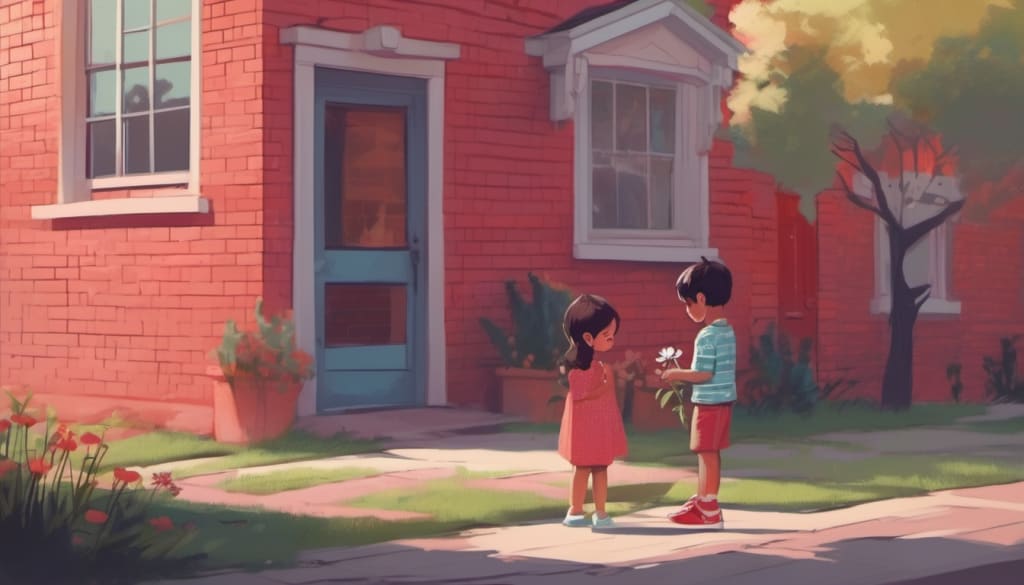
Let's set the record straight once and for all. Gloves are off; here's the formula:
ON APOLOGIES
We've all been wronged just as we have wronged others.
Our broken and disgusting human nature may unfortunately lead us down a path of pain and destruction - especially against those who we love the most. It’s one of the saddest realities of our existence. Whether you do something wrong intentionally or unintentionally, you should recognize when it happens and be fully repentant.
To my knowledge, there are a handful of virtuous acts, and apologies are one of them. When you are sincere and heartfelt in your apology, you rid yourself of a tremendous burden whether you realize it at that moment or not.
No one in their right mind can go against this but for argument’s sake, let’s say you don’t apologize for something you’ve done wrong. Either you don’t want to, you don’t care to, or you feel there’s no need to.
Whatever the excuse may be, consider this: what do you have to lose?
Your ego? Or as some people these days might call it: your “dignity”?
You truly believe that?
In fact, I challenge you to think of the last time you were caught in a back-and-forth exchange of any kind where you felt you were justified in attacking the other person in any way. The key here is back-and-forth. I’m not speaking to those who are victims of unprovoked attacks.
All you’re going to be left with is any variation of this excuse: “they did this to me, so I reacted like that”.
A lot of our problems are due to our reactions to things. This is something that even I’m guilty of and I work on constantly. I wrote about this in my last book, and I wanted to clear the record by saying that apologizing for doing wrong to others remains one of the best things anyone can do.
While I still won’t recommend apologizing for every little thing that might hurt someone else, I do believe that paving the way of understanding through a sincere apology can bring us all a lot closer than trying to defend or justify the evil we cause.
ON FORGIVENESS
An apology is one of the most noble acts one can do, but its full value isn’t realized if the other person doesn’t care to acknowledge or accept it.
Contrary to popular belief, it’s possible to forgive someone even without an apology.
If you forgive someone regardless of the severity of the evil done against you, and regardless of their explicit and sincere remorse, you’re granted an incredible amount of emotional and spiritual strength. If a sincere apology is a great act, then sincere forgiveness of this level is truly divine.
Anyone who is against this level of forgiveness is clearly in a place of weakness and insincerity, which may or may not be justifiable depending on the situation. Hence, it’s natural for them to point the finger at things outside their control so as to not take on the “burden” of having to forgive a transgressor.
Ancient wisdom states that we bring condemnation upon ourselves when we don’t forgive others as we wish to be forgiven. This can be attributed to the “Golden Rule”, which isn’t to say we should expect someone else to apologize to us or forgive us even though we do it for them. To forgive is more of a personal release. It’s saying to yourself without condition or expectation: “I relieve you of this burden, be free”.
ON FORGETTING
You can’t truly forgive someone unless you’re also willing to forget the individual’s offense.
Many make this fatal error by falsely forgiving someone but constantly punishing them time and time again. This is sometimes done unintentionally since many times the evil done to us can be “triggered” by external factors that revive the memory.
However, I’ve learned there’s a difference, and I believe it explains why so many people blindly ignore the act of forgetting as part of the healing process.
You may think that by “forgetting” an evil done by someone, you leave yourself open for another attack. This isn’t necessarily true. What needs to be done is to forget the evil done by the specific person, not necessarily forget the evil itself. In other words, you don’t have to demonize the person, especially if they express remorse. True forgiveness calls for a clean slate, meaning forgetting the evil that the person committed; not the evil itself.
I believe that to truly forgive someone, you can’t bind them to their mistakes forever. Doing so devalues apologies and it makes forgiveness worthless. It gives the offender a false sense of hope. There’s no good that comes from offering someone the forgiveness they seek, only to imprison and torment them continuously for an evil that was supposedly “forgiven”.
What about the times you’re reminded? It’s not your fault.
It’s not your responsibility to control every single aspect of your life to avoid all kinds of triggers. However, it is your responsibility to teach yourself how to properly react when these triggers happen so that you don’t unnecessarily punish those around you.
In other words: you’re perfectly entitled to feel however you want to feel and process those feelings internally any way that you wish. It’s how you express those feelings that will make the real difference.
ON RECONCILIATION
Finally, don’t confuse apologies, forgiveness, and forgetfulness of an individual evil with 'reconciliation'.
Many people make the mistake of thinking that reconciliation, being the final step in the entire process, is a required step. Of all these steps, I would argue that forgiving and forgetting are absolutely required - the others aren’t.
Apologies, forgiveness and forgetfulness of the evil done by a person bring about peace. Reconciliation will vary by situation, but it can only work if there's a true change in character. If there isn't true change in character, you open yourself up to being deceived again. On the opposite end, if there is a true change of character but you refuse to give this person a chance to demonstrate it, then I suppose you’ve every right to do so although you may be needlessly sacrificing more valuable things.
Since I’m speaking specifically about personal relationships, I want to illustrate my point using a standard friendship and a marriage.
If you don’t reconcile with a friend, ask yourself what you stand to lose. Perhaps someone to spend time with, an advocate, or someone you can confide in. All these are easily replaceable.
If you don’t reconcile with your spouse, there’s more at stake. Not only do you lose all of the above, but you also stand to lose your partner in life, possibly your children, even your assets. Hence, I would argue it’s more worthwhile to seek reconciliation with your spouse or family member than it would be with a regular friend or a coworker.
At the end of the day, reconciliation remains completely optional. Sometimes, even the people you love the most don’t have the emotional and spiritual strength to apologize, forgive, or forget; let alone reconcile. This is something that is only accomplished by putting in the effort, killing and burying your ego, and growing in love and trust with those who may have deceived you but sincerely intend to change.
IN SUMMARY
- It’s noble to apologize sincerely for any perceived wrong.
- It’s noble and righteous to forgive sincerely; with or without an apology.
- Forget the person’s evil, but not the evil in general. This avoids needless punishment of someone who’s sincere in improving.
- Ideally, you may reconcile and rebuild the relationship that was once lost if it’s worth saving the things at stake.
If you take this and practice it, I guarantee you a more peaceful and loving life. After all, that’s what most of us seek.
---
Rogue is tired. Rogue is going to nap for while now. Be on the lookout for a new book sometime.
About the Creator
The Rogue Scribe
Writer and Voiceover Artist. Author of 'The Art of Patience, Gratitude & Courage'.
Challenge the world, go rogue with me, and subscribe to support my wordsmithing.
Enjoyed the story? Support the Creator.
Subscribe for free to receive all their stories in your feed. You could also pledge your support or give them a one-off tip, letting them know you appreciate their work.






Comments
There are no comments for this story
Be the first to respond and start the conversation.